
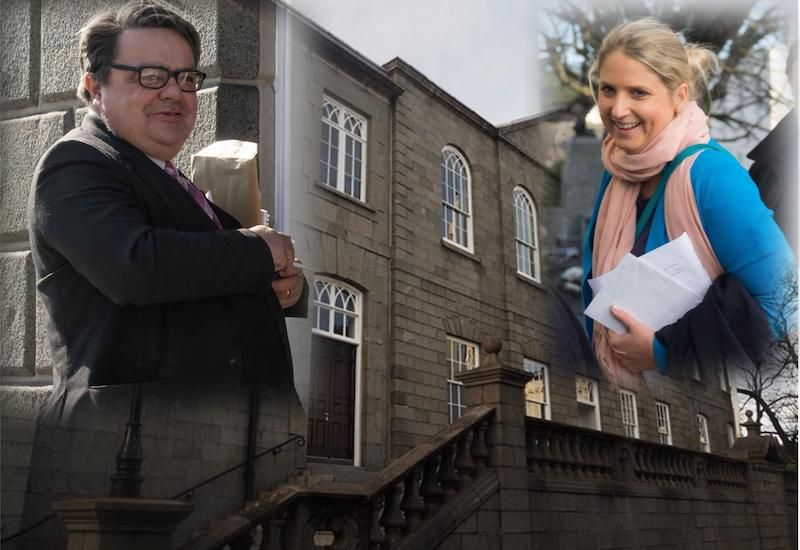

Election candidates who can afford to max out the proposed £9,000 spending limit will have the upper hand in the 2020 election, some Deputies have warned.
The States Assembly and Constitution Committee released proposals last week giving further details about how Guernsey's first ever island-wide election could work.
One of those proposals is that aspiring Deputies will be able to spend up to £9,000 of their own money to promote their election campaign.
Long-serving Deputy John Gollop was outraged by the proposed spending limit, which he thinks would turn the election into a "farce".
"I am shocked that SACC seem to be okay with disadvantaging one candidate over another. Unless they want to grant or loan money to everybody who asks without fear or favour," he said.
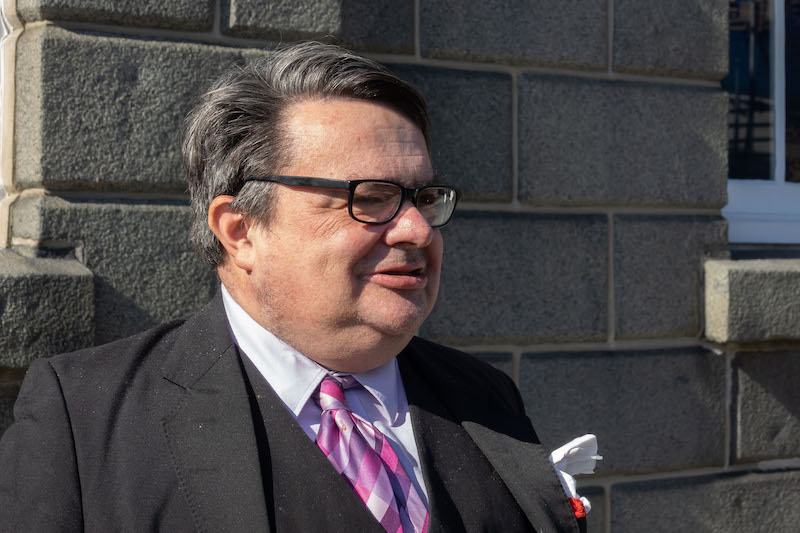
Pictured: Deputy Gollop wants SACC to support the underdogs.
"But most people don’t realise how much election campaigns cost, or marketing ideas.
"I understand SACC want to allow everyone the chance to post a letter to prevent cries of illegality, but Sacc should be more inclusive in their thinking and support the underdogs.
"Bear in mind the election spend is four months net salary for a Deputy. Unaffordable elections will detract candidates and risks making the election a farce."
Former SACC Vice-President Lindsay De Sausmarez said the election should be decided on candidates’ merits, not their spending power.
"The £9k spending limit has to be seen in the context of what other means candidates will have available to them to reach electors," she said. "Under SACC’s proposals, candidates’ two-page manifestos will be sent to each household on the electoral roll and, in addition to that, each candidate will be given a webpage on which they can publish their full manifesto, along with a short video. Those are, in my opinion, good proposals."
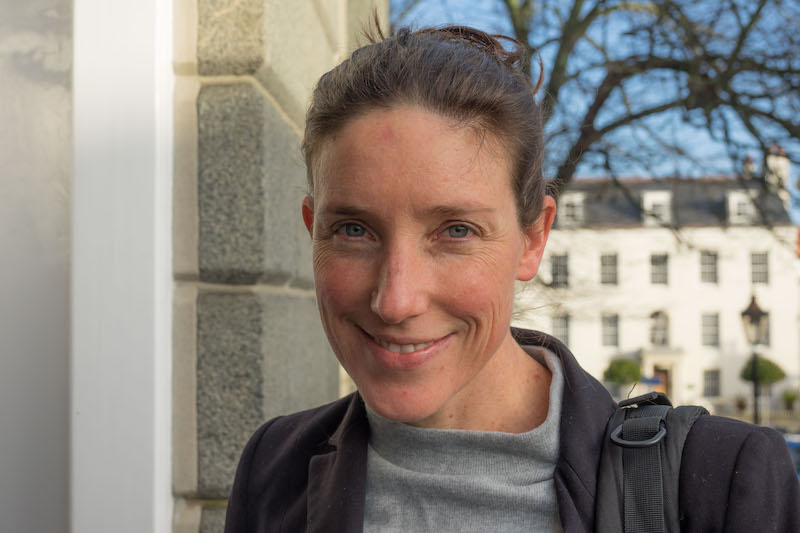
Pictured: While critical of the spending cap, Deputy De Sausmarez said SACC's policy letter also includes some good proposals.
"However, candidates that can afford to spend £9,000 will have a huge advantage over the majority of candidates who won’t be able to afford to spend anything like that sum, and that’s no way to encourage a representative government made up of people from all walks of life."
The Electoral Commission advises that limits should be set so as to deter excessive spending, to prevent the perception of undue influence over the outcome of the election.
"Allowing candidates who can afford it to spend such a significant amount of money will, I think, be perceived as having undue influence over the outcome of the election," said Deputy De Sausmarez.
"A £9k limit effectively discriminates against potential candidates who don’t have that kind of money to spare, and it could mean we see even fewer younger people or people with non-professional backgrounds, for example, being elected to the States.
"A lower spending limit would give candidates of modest means a fairer chance against those with much deeper pockets, and would help to reassure islanders that the election can’t be bought."
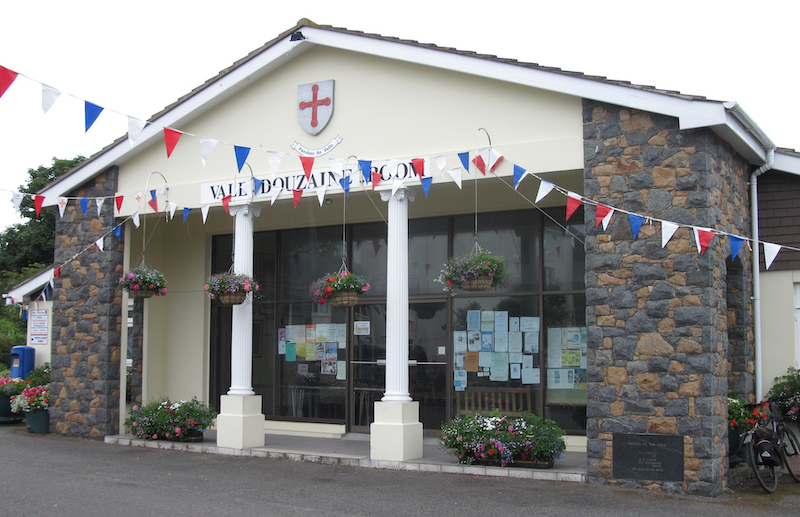
Pictured: Vale Deputy Laurie Queripel said candidates with lower means could make their budget go further by hiring out parish halls and holding drop-ins, Q&A's and hustings with other candidates.
First-time Deputy Victoria Oliver said sending out her manifesto was her main expense ahead of the 2016 district-based election.
"I personally think island wide voting is going to be challenging but the people have spoken so I am very happy to see how it will all work," she said. "I do think £9,000 is way too high. We have no legislation at the moment for parties but SACC are looking into it but doubt if it will come in time. So for instance in a party how is individual spending going to be monitored?
"I would make it much lower - the States are going to send out the manifestos which was my big expense. I didn’t go over the £600 [limit] and £500 was printing, envelopes and postage. So I would set it much lower, maybe £3,000, but would want to do a bit more research before committing to that figure."
And Vale Deputy Laurie Queripel, who will not be standing for election next year, had concerns about how it would influence the outcome of next year's election.
"First off, SACC have a very difficult task here and I applaud them for the way they are tackling it," he said. "Striking a balance - whether it is to do with spending limits or the size of manifestos to be included in the pack to be sent to households - was always going to be a tough ask.
"For me IWV will favour incumbents, high-profile islanders and the better resourced. In this respect I think the £9,000 limit is too high. The process has already induced some dumb down in that candidates will be restricted to a two-page manifesto as part of the post out pack.
"In my view this will make it much harder for someone little known and of limited resources to really get themselves and their policy ideas across. I'm not saying that endless pages of waffle should be the order of the day but some detail is required.
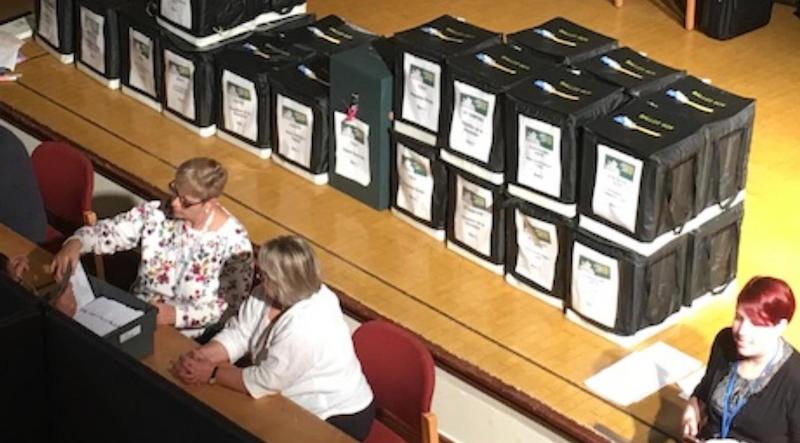
Pictured: Last October's referendum decided that there would be an island-wide election for the first time in 2020.
"My concern is that these manifestos will mainly include soundbites and broad brush statements. The advantage will surely go to those who can produce the most impressive looking/sounding CV. So more like an ad rather than a manifesto for government. Those who are better resourced will find and fund ways to get detail across."
However, Deputy Queripel had some advice for candidates on lower means to get their message across.
"There are ways for those with limited campaign means to further project themselves. If I were to stand (which I'm not) I would seek to hire parish/community halls across the island over a number of weeks for drop-ins and I would invite other candidates to join me in that endeavour and share the cost," he said. "I would envisage these sessions lasting several hours, day time and evening.
"A candidate could make themselves available for one to one appointments, visiting people's homes on invitation. Wherever posters are allowed across the island (supermarkets, retail outlets, post offices?) I would request a spot, as this is quite an inexpensive way of promoting one's candidacy."
Pictured top: Deputies John Gollop and Victoria Oliver over the Royal Court building.
Comments
Comments on this story express the views of the commentator only, not Bailiwick Publishing. We are unable to guarantee the accuracy of any of those comments.